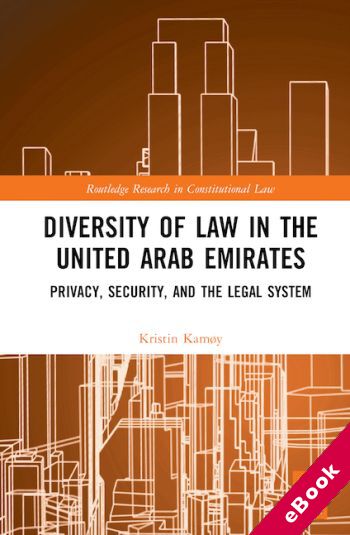
The device(s) you use to access the eBook content must be authorized with an Adobe ID before you download the product otherwise it will fail to register correctly.
For further information see https://www.wildy.com/ebook-formats
Once the order is confirmed an automated e-mail will be sent to you to allow you to download the eBook.
All eBooks are supplied firm sale and cannot be returned. If you believe there is a fault with your eBook then contact us on ebooks@wildy.com and we will help in resolving the issue. This does not affect your statutory rights.
This book examines the law and its practice in the United Arab Emirates (UAE). The objective is to understand the logic of the legal system in the UAE through a rounded analysis of its laws in context. It thus presents an understanding of the system on its own terms beyond the accepted Western model.
The book shows how Emirati law differs from conventional rule of law. The first section of the book deals with the imperial, international, and cultural background of the Emirati legal system and its influences on some of the elements of the legal system today. It maps the state’s international legal obligations according to core human rights treaties showing how universal interpretations of rights may differ from Emirati interpretations of rights. This logic is further illustrated through an overview of the legal system, in federal, local and free zones, and how the UAE’s diversity of legal sources from Islamic and colonial law provides a legal adaptability. The second section of the book deals mainly with the contemporary system of rule of law in the UAE but at times makes a detour to the British administration to show how imperial execution of power during the British administration created forerunners visible today.Finally, the debut of the UAE on the international scene contributed to interest in human rights investigations having manifestations in UAE law.
The work will be a valuable resource for researchers and academics working in the areas of Comparative Constitutional Law, Legal Anthropology, Legal Pluralism and Middle Eastern Studies.